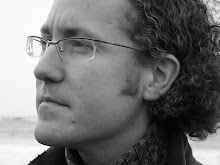Edgecodes is a documentary produced by Travesty productions in
The film is primarily made up of taking heads discussing the development of film editing whilst examples are intercut with their dialogue and the entire film is edited in a way that highlights exactly what they are talking about. It is a wonderful resource for obscure early cinema clips such as Keaton in Sherlock Jr. walking into the cinema screen and being tormented by the editing. There is also a replication of the classic Kuleshov Effect. For those of you who aren’t familiar with this effect it was the first time that the potential of editing for creating meaning through juxtaposition of shots was formally shown. (Lev Kuleshov was a Russian Filmmaker and theorist who, in the 1920s along with the likes of Sergei Eisenstein, Vsevolod Pudovkin, and Dziga Vertov experimented with the potential of editing for the creation and manipulation of meaning, primarily as propaganda. The Kuleshov Effect refers to the juxtaposition of an actor’s expressionless face with one of three point of view (POV) shots: either a bowl of soup, happy child, or a dead woman. The supposed effect is for the viewer to project different emotions on to the face of the actor depending on the POV shot: hunger, parental pride, or loss and sadness.)
The most satisfying part of the documentary for me was to hear renowned film editors theorising on the reasons why they edit and why editing works. Like a lot of supposed opinion in this area most of what was said could be related back to text books, such as Zach Staenberg (editor of The Matrix) describing editing as being about making decisions based on graphic, spatial, temporal, and rhythmical relationships between shots which is a direct reference from Bordwell and Thompson’s ‘Film Art: An Introduction’ (1979/2003). The acceptance of this theory by film editors shows that either it must have some grounding in truth or the editors just don’t have any better way of expressing their intuition about their art. The same can be said for the comments about the reason why editing works: each comment can be directly related to film text books and, whilst thought provoking, don’t really get us any closer to an understanding. However, the overriding impression I gained from Edgecodes is that the editors are eager to understand, they spend their lives experimenting on themselves, trying to induce and control their experiences and so they are eager for any new technology, technique or theory that allows them to do this. I feel that they (and by result, their audience) will be the ones to really benefit from any greater understanding about the psychology of the edit I can produce. Here’s hoping.




No comments:
Post a Comment